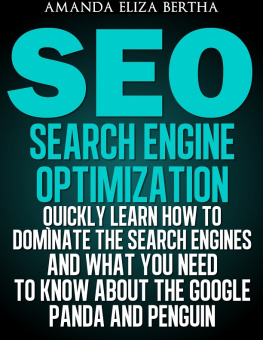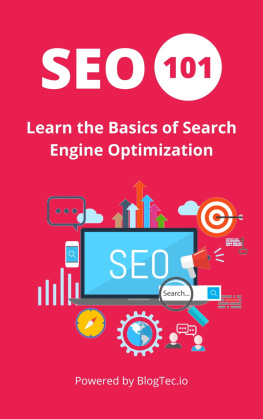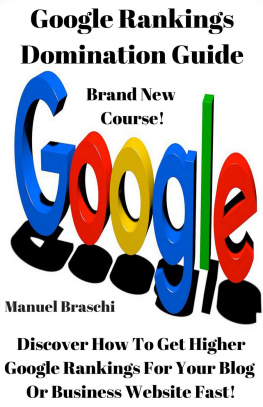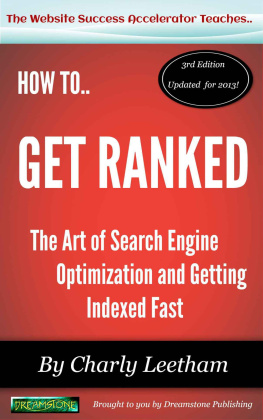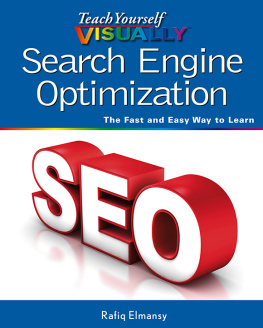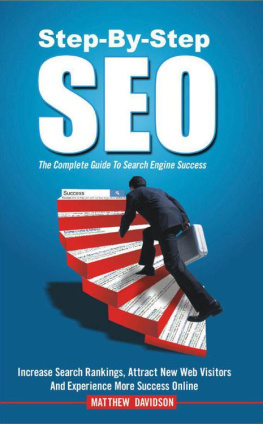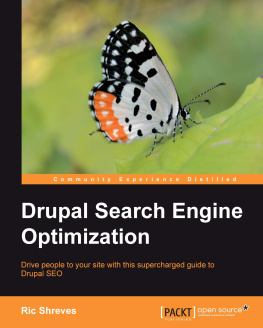
Introduction
Rather than go into a long explanation, here is a brief bit of background to the introduction of the World Wide Web to the general population. The reason for this is that without understanding how the internet developed, it is difficult to grasp the situation where seeking page one of Google means so much to the web business world.
To begin at the beginning we have to go back to 1980 when Tim Berners-Lee came up with the concept of hypertext as a way to share information. It was hard for scientists to share ideas across the country because they were limited to text and much of their exploration involved drawings and sketches. Eventually, Berners-Lee realized that the power of sharing information would increase immensely if he could find a way to share the information using the protocols that had become available for sharing communications.
Actually, the internet concept had been in use since the Bay of Pigs invasion in 1961 when the American government realized that having all their command information in one location was very dangerous. A single hit could wipe out communications and cripple the country.
Here is a tiny bit of background on the Bay of Pigs Invasion. It was an April 1961 invasion of Cuba carried out by Brigade 2506. This Brigade was a militia group that the CIA paid for and trained. The plan was for the Brigade to overthrow the Cuban government ruled by Osvaldo Dortics Torrado. However, the CIA-trained Brigade 2506 was defeated by a Cuban army led by Cubas Prime Minister Fidel Castro. This defeat was a shock to the American government and focused attention on the need to protect the country in the Cold War that had been underway for several years.
With the possibility of more defeat, with communist Cuba hovering so close to the country, there was an acute awareness of a serious problem. What if the communication system was destroyed completely? And it could be because there was one central core to the communications. Brilliant scientists at the top universities studied the problem. Leonard Kleinrock, a graduate student at MIT, had discovered something called packet switching and in 1961, he wrote a paper about it.
Very simply stated, packet switching means that messages are divided up into packets that are sent in little pieces and when the packets all arrive at their destination, they are reunited. This was the heart of the solution to centralized communications. The US governments defense research department set up the ARPAnet (Advanced Research Projects Agency Network) which was built on using packet switching. ARPAnet was the grandfather of the Internet as we know it.
Because ARPAnet connected universities and research centers, it became a way for researchers to share their information and this is why Berners-Lee was looking for a faster and more comprehensive way to share information over the network. His search for a way to share information led to the development of hypertext markup language (HTML) and then a browser that allowed people to see the graphics and details of the research carried out at other institutions. His first browser was the NeXTStep WorldWideWeb application which he created in 1990. On August 6, 1991, Berners-Lee presented the first web page ever to the world. It was the CERN (European Organization for Nuclear Research) site.
However this book is about search engine optimization and it is time to move to the web as we know it today and how search engines came to be so powerful and why Google keeps changing its algorithms.
The World Wide Web Emerges
The power of html and this method of sharing information exploded on the academic community and spread out to the general population. NeXTStep WorldWideWeb was renamed Nexus and Berners-Lee released the source code into the public domain in 1993. You could edit the hypertext and view it with Nexus. The next browsers developed only allowed people to view the hypertext.
People began to build their own websites. MTV had one of the first websites, appearing in 1993. By the end of 1994, there were about ten thousand websites in the entire world. In 1995, a new website emerged and that was Jerry's Guide to the World Wide Web. Later it changed its name to Yahoo and then to Yahoo!
Yahoo! was the creation of Jerry Yang and David Filo, graduate students in electrical engineering at Stanford. They came up with the idea in January 1994, It was incorporated on March 1, 1995. As the number of website grew so quickly, Yang and Filo came up with the idea of creating a directory and registered the domain name yahoo.com on January 18, 1995.
In case you are wondering about the name, Yahoo stands for Yet Another Hierarchical Officious Oracle. However, yahoo was a common epithet for rural people from the South and Filo was from the southern USA.
The problem began right about this time as the number of web pages grew, it was becoming harder and harder to find what you wanted online. There was more and more information and it was becoming a real challenge to find your way through the mass of pages. Yahoo! was just what people needed to help them find their way through the web.
Google Begins
In 1995 Sergey Brin and Larry Page met. Page had just graduated from the University of Michigan and Brin was showing him around Stanford. When Page did decide to enter Stanford, he and Brin collaborated on a search engine. They were both computer science graduate students and the World Wide Web was in full flight. They called their project BackRub at first. Then they decided it needed a better name so chose Googol. Googol refers to a very large number - 1 with 100 zeroes. A million has nine zeroes so you can imagine how large this number is.
The two men were only in their early twenties at the time and you can see the playful nature of their naming conventions, just as with Yahoo! This may have been serious stuff but these were students playing with an idea. They planned to systematize all the information on the World Wide Web. The domain googol.com was already taken and rather than deal with the problem of trying to obtain that name, the men chose to register google.com. In September 1998, Page and Brin opened their Google office in Menlo Park in a garage. Within months, the superior algorithm of Google showed its impact on the search engine world. By the end of 2001, Google had three billion documents in its index.
SEO Explained
This has been a longish explanation of search engines but in order to understand search engine optimization or SEO, it helps to understand the rapid growth of the World Wide Web and the need for people to find ways to have their websites land at the top page of search engines, in particular Google.
Google ruled the Ethernet waves. On one side of the search engine world there were (and are) people like Berners-Lee, Yang, Filo, Page, Brin and a whole legion of similar technical minds whose goal was to make sharing information relevant and accessible.
On the other side of the World Wide Web universe, there were (and are) the entrepreneurs and marketers and web gurus whose goals include being easily found online. If they could discover the perfect way to optimize their websites for search engine optimization, they could be at the top of the list of websites that any search engine found for web surfers.
SEO - The Early Years
In the early years of search engines, there were also early years of SEO. Think of the growth of search engines and the growth of ways to attract search engines as a kind of dance. On one hand, brilliant minds are trying to find a way to evaluate and reveal the good web pages that are appearing in increasing numbers on the web. On the other hand, the people putting up the growing numbers of web sites are trying to figure out how to make their web pages appear at the top of the directory lists.
Next page
